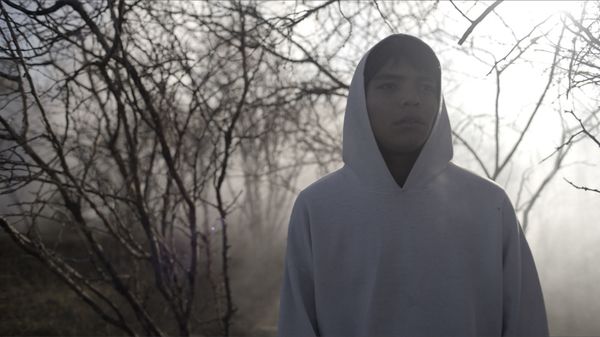Eye For Film >> Movies >> Sujo (2024) Film Review
Sujo
Reviewed by: Jeremy Mathews

The human spirit can be remarkably resilient, but humankind’s capacity for violence sadly makes that resilience more necessary than it should be. Fernanda Valadez’s Sujo meditates, ponders and reaches touching heights as it follows the marked son of a dead sicario from childhood to young adulthood as he tries to escape the cycle of violence and death that plague his village and his family.
The movie is another triumph for writer/director Valadez, who made the 2020 Sundance hit Identifying Features with screenwriter Astrid Rondero, who collaborates with him again here, and actor Juan Jesús Varela, who plays the title character from his teenage years on. It captures danger, suspense, tenderness and hope as it considers how someone can escape their apparent destiny.

Set in a rural Mexican village where cartels call the shots and everyone else hopes to live life peacefully, the story follows Sujo and his family. Title cards divide it into four chapters, each named for figures who shaped the title character’s life, starting with his father Josue aka “El Ocho”, a cartel heavy who murders his boss — who also happens to be the main boss’s son — in a miscalculated power grab when Sujo is four years old.
You can see that Josue truly loves his son, yet he can’t translate that love into keeping the boy out of danger. He leaves him in the car longer than planned while committing the execution, which in turn signs the boy’s death warrant. Sujo only survives due to the women in his life, particularly his stubborn Aunt Nemesia (portrayed beautifully by Yadira Pérez) whose name graces the second chapter. Sujo has an almost magical dreamland connection to his aunt that Valadez accentuates thanks to his knack for the lyrical.
Valadez also has a gift for capturing his characters’ perspectives. A suspenseful scene, in which Sujo hides from the mob boss who wants to kill him, becomes all the more gripping thanks to the director’s attention to details.
While cartel violence drives the trajectory of Sujo’s life, he never witnesses it — only hears it and faces the aftermath. The film echoes this perspective, and the only gun violence portrayed on screen is viewed on a cell phone in Mexico City, watched by people far removed from the situation. This decision emphasises the ripple effects of violence — you don’t need to encounter it first-hand for it to ruin your life.
Sujo’s opening scene takes place long before the birth of its hero, showing a moment from his father’s childhood in which he finds a beautiful runaway horse. Before that, the horse, tied to a tree, hears gunshots from a nearby rodeo, breaks free and runs like hell. It may not be the most subtle metaphor, but it resonates with the overarching theme of living in a situation for which, no matter how hard it you try, it’s impossible to run away.
The film ends on a poignant note that reminds us how much Josue loved his son, but also that he died before expressing the extent of that love. This leaves Sujo to grow up only knowing his father’s misdeeds — everything that made him a bad person — with no clue how special he was to him. While we see how much expressions of love and forgiveness help this boy make it through, we’re also faced with thinking about where they’re missing, and to mull over about how hard it is stay resilient without them.
Reviewed on: 22 Jan 2024














